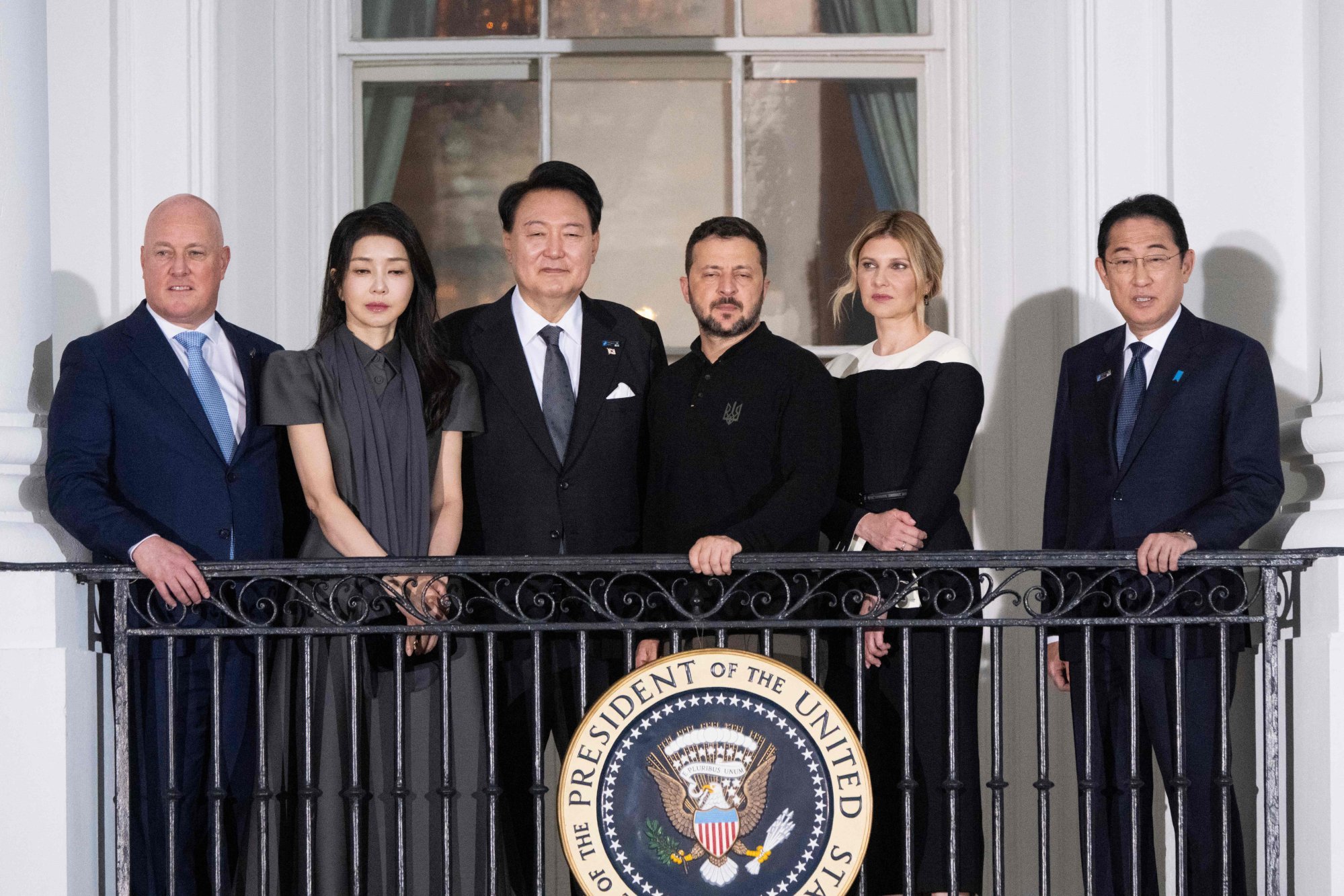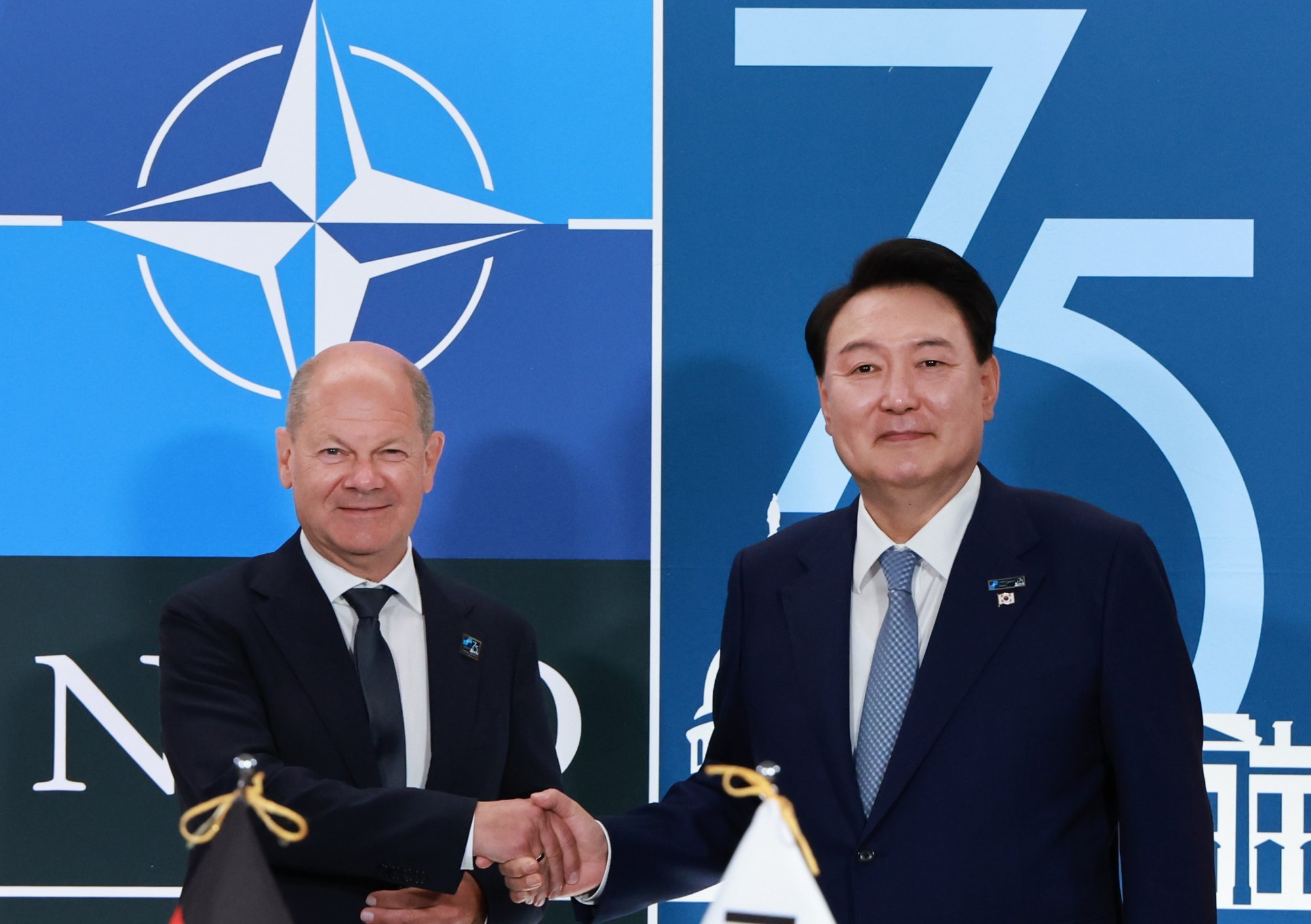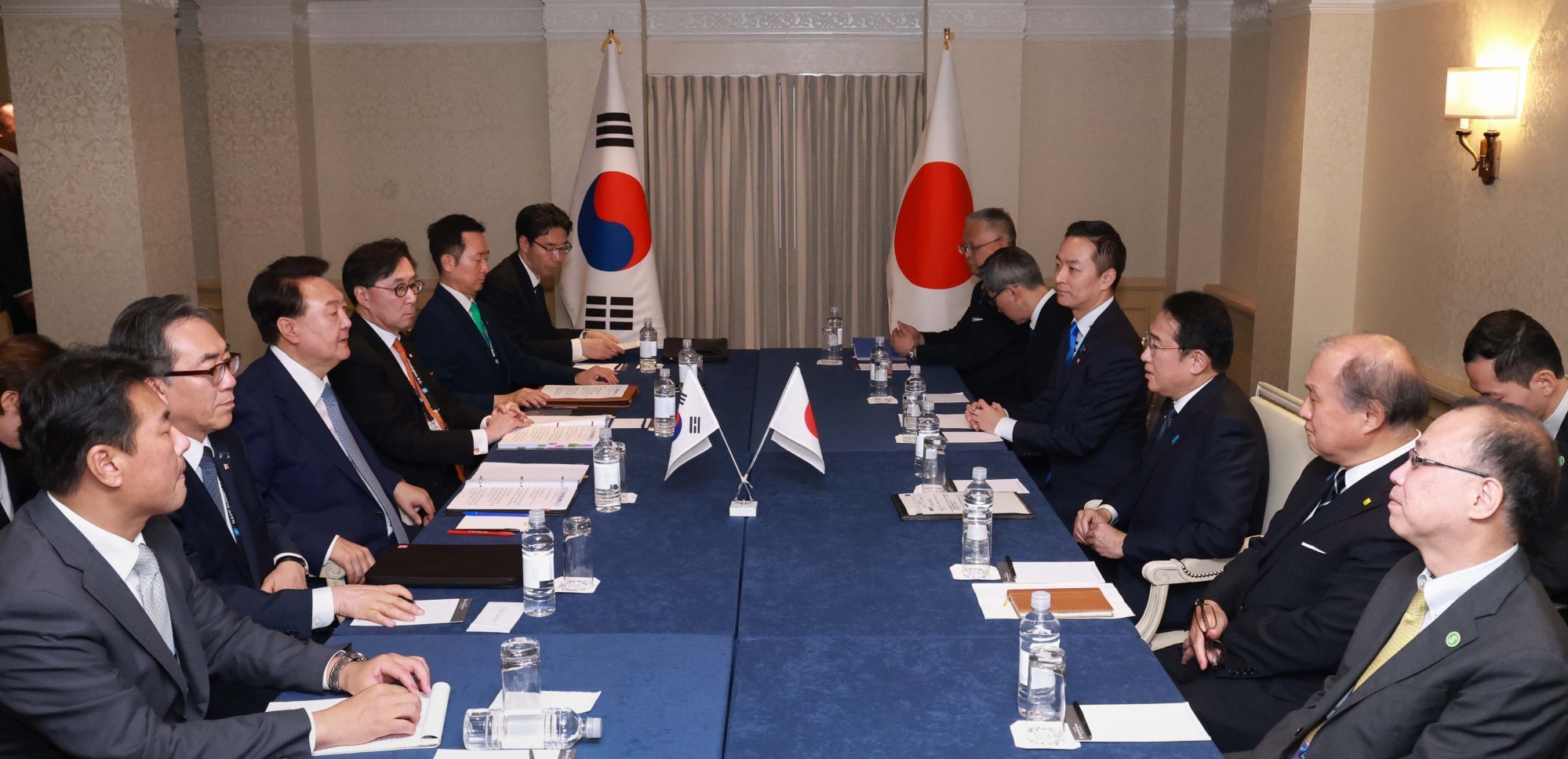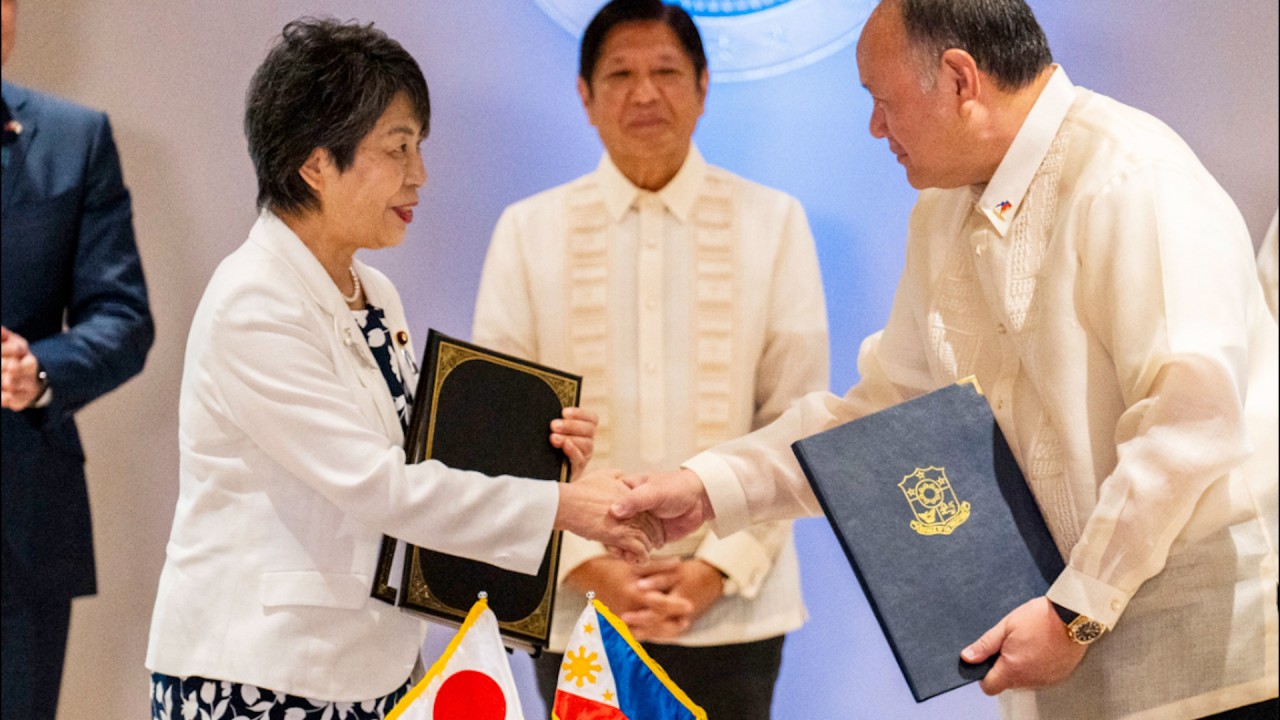South Korea risks ‘crossfire’ by partnering Nato amid Ukraine war, US-China rivalry
At the summit, Stoltenberg said Nato would enhance cooperation in “flagship projects” on Ukraine and new technologies, and discuss defence industry partnerships with South Korea, the Yonhap news agency said.
Kim Joon-hyung, a security analyst who served as a former South Korean government adviser, warned on Thursday that South Korea could face pressure from Nato members to supply lethal weapons to Ukraine directly and risk turning Russia into an arch-enemy on top of nuclear-armed North Korea.

South Korea has a long-standing policy of not providing lethal weapons directly to any country at war. It reportedly supplied munitions to Ukraine last year via the US in accordance with the policy.
President Yoon Suk-yeol this week threatened to ditch the policy and supply weapons directly to Ukraine, depending on the nature of a new military pact between Moscow and Pyongyang.
“South Korea is ... capable of producing conventional weapons massively and keeping vast stockpiles of munitions,” Kim told This Week in Asia.
“By actively taking part in the Nato-IP4 meeting, President Yoon could expose the country to collective pressures to supply weapons directly to Ukraine,” said Kim, an opposition lawmaker and a former head of the Korea National Diplomatic Academy.
“If this trend continues, South Korea, due to its geographic and strategic positions, would find itself becoming like a frontline soldier caught in a crossfire,” Kim added.
Chang Yong-Seok, a senior researcher at the Seoul National University’s Institute for Peace and Unification, said the Nato-IP4 meeting represented “a significant step” in the bloc’s efforts to reach out to the Indo-Pacific region to deter China.

“But this move could only push China, which is still hesitant to join the Russo-North Korean alliance, deeper into their arms,” Chang said.
Ambassador Joseph DeTrani, a former special envoy for the six-party nuclear talks, said the Nato-IP4 meeting would help enhance deterrence by involving more allies. Any aggressor contemplating an attack on another sovereign country would “think twice” knowing that “an alliance of countries would be a more formidable adversary”, DeTrani said.
“Seeing what Russia did in Ukraine and what China is doing in the South China Sea and in the Taiwan Strait are obvious reasons why the Indo-Pacific countries are interested in a dialogue with Nato to enhance deterrence and bolster their defences,” DeTrani told This Week in Asia in an email interview Thursday.
Evens Revere, Senior Fellow at Brookings and former US Acting Assistant Secretary of State for East Asian and Pacific Affairs, called the Nato-IP4 meeting an “important milestone”.
There was an emerging consensus among Nato and the four Indo-Pacific countries of the “indivisible” peace and security in Europe and Asia. The two sides were wary of the China-Russia “partnership without limits”, the Russia-North Korea comprehensive strategic partnership and Pyongyang’s military support for Russia’s war against Ukraine, Revere said.
These developments have sent a message to the international community about the need for closer cooperation with Seoul being the beneficiary of such partnerships after it received statements of support from Nato and the EU, according to Revere.
Mirna Galic, a senior policy analyst for China and East Asia at the US Institute of Peace, said Indo-Pacific partner countries can deflect Chinese displeasure over their engagement with Nato more effectively as a group compared with participation by individual countries.
“The grouping also helps facilitate increasing internal links between the hubs of the traditional US hub-and-spoke alliance system in the region,” she wrote in April on the Institute’s homepage.
“Additionally, the IP4 can provide a platform for engagement that could be controversial if done bilaterally when tensions between two countries are high, as was previously the case between Japan and South Korea,” she said.
Michael Reiterer, a professor at the Center for Security, Diplomacy and Strategy at the Brussels School of Governance, said South Korea was wooed by Nato as some of the bloc members such as Poland were seeking to buy quality weapons at good prices.

Park Won-gon, a political science professor at the Ewha Womans University, said the meeting arose as the US wanted its allies to shoulder a greater defence burden.
“For South Korea, the federation of deterrence networks spanning both regions will certainly help deter the North,” he said.
He dismissed suggestions that the move could worsen regional tensions and the US-China rivalry.
“This is not to antagonise China, Russia and North Korea as a bloc but it aims to bolster global cooperation in keeping the rule-based international order,” he said.
Kim Dong-yub, a senior researcher at the Institute for Far Eastern Studies at Kyungnam University, however, said South Korea’s closer ties with Nato could lead to the country getting involved in the war in Ukraine or a conflict over Taiwan.
“South Korea must focus on deterring the North rather than being distracted by troubles happening in the rest of the world,” he said.
